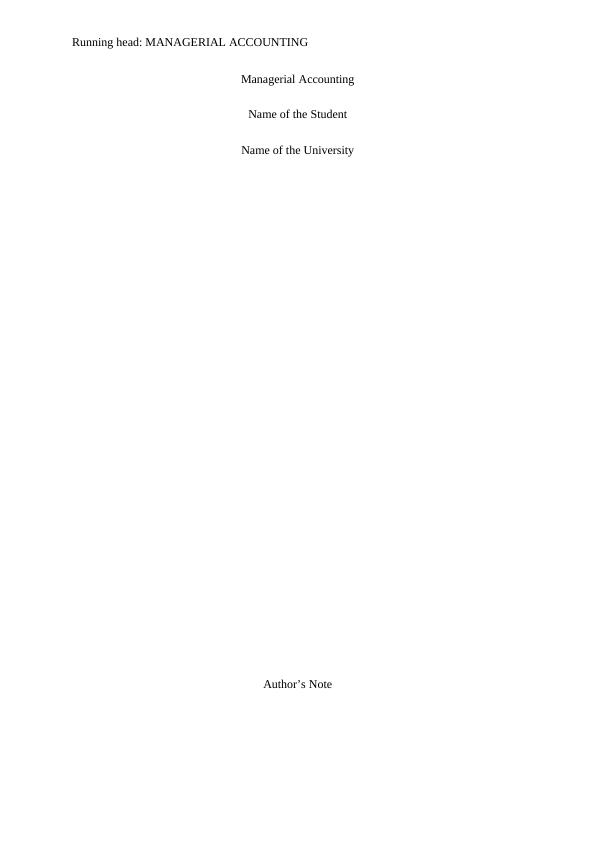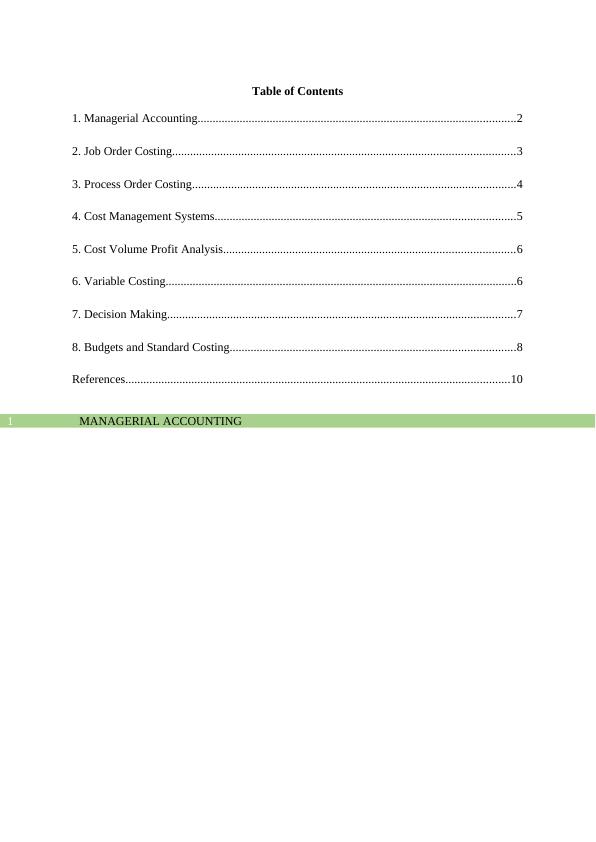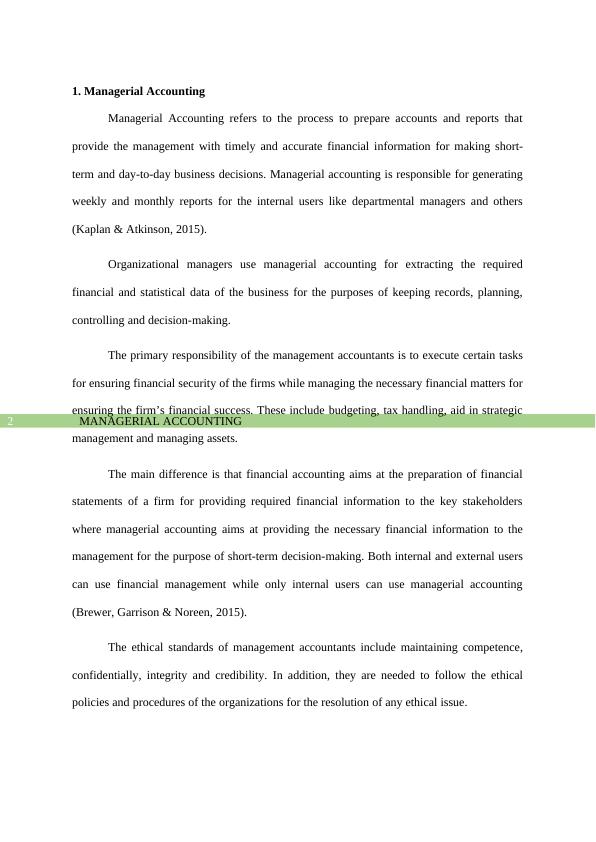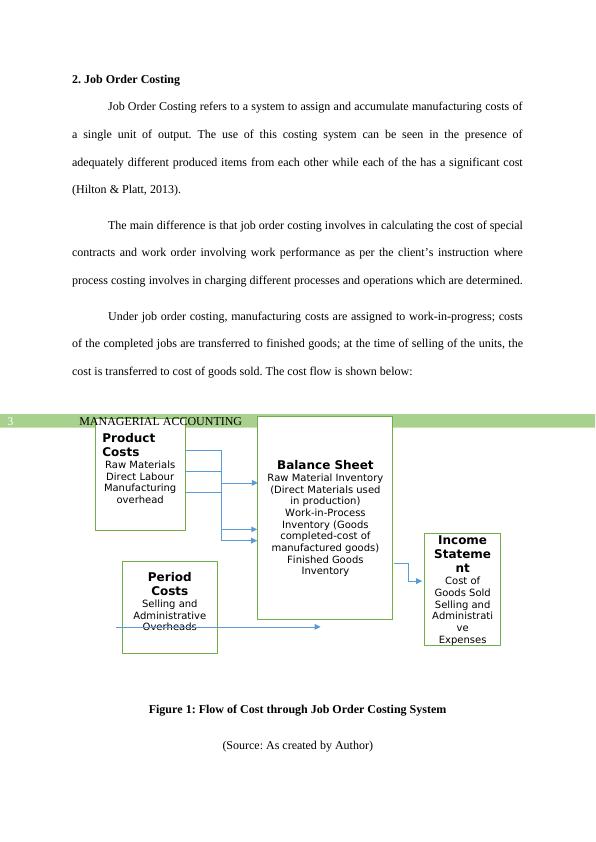Managerial Accounting
12 Pages2739 Words237 Views
Added on 2022-11-27
About This Document
This document provides an overview of managerial accounting and its role in providing financial information for decision-making. It covers topics such as job order costing, process order costing, cost management systems, cost volume profit analysis, variable costing, decision making, and budgets and standard costing.
Managerial Accounting
Added on 2022-11-27
ShareRelated Documents
End of preview
Want to access all the pages? Upload your documents or become a member.
Benefits of Replacing Activity Based Costing (ABC)
|11
|2518
|65
Managerial Accounting: Techniques, Calculations and Applications
|13
|1145
|191
Calculating Inventory (Doc)
|1
|323
|408
Assignment about Cost of Goods Manufactured Statement
|16
|3245
|18
Job Costing System: Explanation, Advantages, and Examples
|6
|1825
|245
Management Accounting: Manufacturing Cost Flows, International Issues, Comprehensive Manufacturing Budget
|17
|3521
|466




